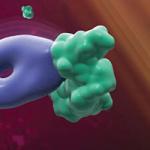
Research Topics
Dr. Inglese's chemical biology laboratory investigates concepts and strategies to identify molecular modalities targeting genes, proteins, and pathways implicated in rare, chronic and infectious diseases. To advance a more efficient drug discovery paradigm, the Assay Development and Screening Technology (ADST) component of the laboratory specializes in the design of biochemical, cellular, and microorganism-based assays that drive the high-throughput pharmacological interrogation of drug, investigational agent and novel composition of matter libraries. Biological processes, including gene expression, posttranslational regulation, signaling, and metabolism, that are involved in disorders ranging from neuropathies and cancer to infectious diseases such as malaria and onchocerciasis have formed the foundation for assays developed in the laboratory.
These projects have involved multi-institutional efforts, including rare disease foundations, intramural NIH laboratories, academic labs and centers, as well as biotechnology companies. Projects often incorporated new technologies to test in drug discovery settings. For example, implementing a novel reporter gene system created to reduce the incidence of false positives/negatives from high throughput screening (HTS), the team, in collaboration with the Michael J Fox Foundation and Charcot-Marie-Tooth (CMT) Association, genome edited this 'coincidence reporter' into neuronal or Schwann cell types, respectively. These cell lines were used to model gene-dosage disorders related to Parkinson's disease or CMT type 1A peripheral neuropathy, enabling defined disease systems for quantitative HTS.
In addition, these assay platforms and target proteins have been deployed to evaluate new chemical libraries for candidate drug leads or chemical probes. These have included libraries assembled by academic chemistry consortia, those consisting of microbial natural product extracts, and vast mixtures of nucleic acid-encoded peptides. For instance, in a cross-institutional collaboration, ipglycermides, potent macrocyclic peptide (MCP) inhibitors of cofactor-independent phosphoglycerate mutase, a glycolytic enzyme essential to the viability of many pathogenic organisms were discovered from affinity selection using a large mRNA-display MCP library.
Building on the laboratory's discovery that a ligand's binding to a target protein can influence the output of a fused terminal sensor, the ligand-biased structural dynamics response (SDR) assay was developed. This novel and sensitive method directly measures ligand binding and has broad applications in biochemistry, pharmacology, and drug discovery. The SDR assay has been successfully applied to a diverse range of targets, including kinases, oxidoreductases, isomerases, and DNA ligases. Its utility extends to detecting binding synergy with co-factor-dependent enzymes and identifying compounds that bind to allosteric pockets. The SDR assay is especially valuable for protein targets that are not easily adapted to standard high-throughput screening (HTS) methods or for enzymes with inaccessible, unstable, or unknown substrates.
The laboratory also has a long-standing interest in antifolate chemotherapy, particularly the enigmatic folate analog methotrexate (MTX) developed in 1947 and in use today. MTX is a pro-drug with a complex polypharmacology. Over the decades, thousands of MTX analogs have been made aiming to improve efficacy and side-effect profile. Envisioning approaches to isolate some of MTX's beneficial properties, the team explored proteasome-targeting technology. This led to versortrexate (VSTX), an MTX-based modality that specifically engages dihydrofolate reductase (DHFR), a key enzyme among MTX's cellular targets. Unlike MTX which causes the cell to upregulate DHFR, VSTX acts catalytically to degrade multiple DHFRs, retaining its activity in MTX-resistant cells, and displaying low cellular toxicity with a steep folate-dependence. These properties potentially enable useful drug combinations for cancer, immune disorders, and other yet to be explored disease indications, while having little toxicity on non-malignant cell types.
Overall, the research program adheres to a philosophy of scientific rigor, emphasizing robust experimental design, unbiased data analysis, and collaborative partnerships. By operating at the nexus of chemical biology and translational science and leveraging advanced technologies, the laboratory provides an exceptional training ground for those pursuing careers in pharmaceutical research and development.
Biography
Dr. James Inglese, Ph.D. is a Senior Scientist within the National Center for Advancing Translational Sciences (NCATS) and Adjunct Investigator of the National Human Genome Research Institute (NHGRI). Prior to this he co-founded the NIH Chemical Genomics Center (NCGC) serving as its Deputy Director. Dr. Inglese received his B.S. in chemistry from the Rensselaer Polytechnic Institute where he minored in biochemistry and conduced undergraduate research in the laboratory of Prof. James K. Coward, Ph.D. There he synthesized a methotrexate analog, γ-fluoromethotrexate (FMTX) as part of a study soon thereafter appearing in PNAS, his first publication, and leading to a long-standing interest in one-carbon metabolism and chemotherapeutics. He went on to receive his Ph.D. in organic chemistry from the Pennsylvania State University, under the guidance of chemist and enzymologist Stephen J. Benkovic, Ph.D., where he studied tetrahydrofolate-dependent purine biosynthetic enzymes as new anticancer targets. He then acquired expertise in cellular and molecular biology through postdoctoral training in the laboratory of Robert J. Lefkowitz, M.D., at Duke University Medical Center, investigating regulatory kinases of G protein–coupled receptor signaling. Before coming to NIH, Dr. Inglese led research teams at the Princeton-based combinatorial chemistry biotechnology company Pharmacopeia, Inc., and at Merck Research Laboratories.
NIH Chemical Genomics Center (NCGC)— Dr. Inglese was recruited from Merck to help establish NIH's flagship Molecular Libraries Screening Center Network (MLSCN) laboratory. This included selecting the lab's location, HTS equipment infrastructure, recruiting and managing top talent, and setting the standard for excellence and rigor in scientific innovation and collaboration. His foremost goal was to differentiate NCGC among its prestigious university MLSCN peers, accomplished by spearheading the development of quantitative HTS (qHTS), a paradigm-shift from conventional HTS. The proof-of-concept for qHTS resulted in the discovery of the first synthetic pyruvate kinase activators, subsequently parlayed by a biotech company into an FDA-approved hemolytic anemia treatment.
Dr. Inglese has contributed to more than 200 peer-reviewed publications and patents and is the founding editor of the journal ASSAY and Drug Development Technologies, serving as editor-in-chief from 2002 to 2014. He co-chaired the 2015 conference of the Society of Laboratory Automation and Screening. Dr. Inglese has also served as a scientific advisor to NIH-funded chemistry and screening centers, disease foundations, and international chemical biology consortia.
Selected Publications
- Ciulla DA, Dranchak PK, Aitha M, van Neer RHP, Shah D, Tharakan R, Wilson KM, Wang Y, Braisted JC, Inglese J. A general assay platform to study protein pharmacology using ligand-dependent structural dynamics. Nat Commun. 2025;16(1):4342.
- van Neer RHP, Dranchak PK, Aitha M, Liu L, Carlson EK, Jacobsen IE, Battaile K, Fang Y, Tao D, Rai G, Padia J, Lovell S, Suga H, Inglese J. Active- and Allosteric-Site Cyclic Peptide Inhibitors of Secreted M. tuberculosis Chorismate Mutase. ACS Infect Dis. 2025;11(3):703-714.
- Rana S, Dranchak P, Dahlin JL, Lamy L, Li W, Oliphant E, Shrimp JH, Rajacharya GH, Tharakan R, Holland DO, Whitten AS, Wilson KM, Singh PK, Durum SK, Tao D, Rai G, Inglese J. Methotrexate-based PROTACs as DHFR-specific chemical probes. Cell Chem Biol. 2024;31(2):221-233.e14.
- Dranchak PK, Oliphant E, Queme B, Lamy L, Wang Y, Huang R, Xia M, Tao D, Inglese J. In vivo quantitative high-throughput screening for drug discovery and comparative toxicology. Dis Model Mech. 2023;16(3).
- van Neer RHP, Dranchak PK, Liu L, Aitha M, Queme B, Kimura H, Katoh T, Battaile KP, Lovell S, Inglese J, Suga H. Serum-Stable and Selective Backbone-N-Methylated Cyclic Peptides That Inhibit Prokaryotic Glycolytic Mutases. ACS Chem Biol. 2022;17(8):2284-2295.
Related Scientific Focus Areas



Molecular Biology and Biochemistry
View additional Principal Investigators in Molecular Biology and Biochemistry


This page was last updated on Tuesday, September 16, 2025